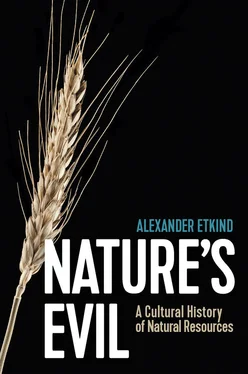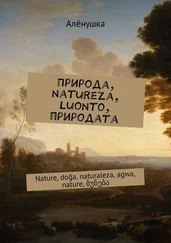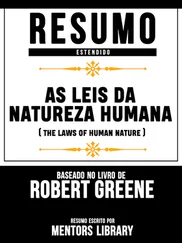337 343
338 344
339 345
340 346
341 347
342 348
343 349
344 350
345 351
346 352
347 353
348 354
349 355
350 356
351 357
352 358
353 359
354 360
355 361
Series Title
New Russian Thought
The publication of this series was made possible with the support of the Zimin Foundation
Vladimir Bibikhin, The Woods
Alexander Etkind, Nature’s Evil
Boris Kolonitskii, Comrade Kerensky
Sergei Medvedev, The Return of the Russian Leviathan
Maxim Trudolyubov, The Tragedy of Property
NATURE’S EVIL
A Cultural History of Natural Resources
Alexander Etkind
Translated by Sara Jolly
polity
First published in Russian as Природа зла: Сырье и государство by New Literary Review.
Copyright Alexander Etkind © 2021
This English translation © Polity Press, 2021
This book was published with the support of the Zimin Foundation.

Polity Press
65 Bridge Street
Cambridge CB2 1UR, UK
Polity Press
101 Station Landing
Suite 300
Medford, MA 02155, USA
All rights reserved. Except for the quotation of short passages for the purpose of criticism and review, no part of this publication may be reproduced, stored in a retrieval system or transmitted, in any form or by any means, electronic, mechanical, photocopying, recording or otherwise, without the prior permission of the publisher.
ISBN-13: 978-1-5095-4758-6 – hardback
A catalogue record for this book is available from the British Library.
Library of Congress Cataloging-in-Publication Data
Names: Ėtkind, Aleksandr, 1955- author. | Jolly, Sara, translator.
Title: Nature’s evil : a cultural history of natural resources / Alexander Etkind ; translated by Sara Jolly.
Other titles: Природа зла. English
Description: Medford : Polity Press, 2021. | Series: New Russian thought | First published in Russian as Природа зла: Сырье и государство by New Literary Review. | Includes bibliographical references and index. | Summary: “Retelling the story of humankind through our relationship to the natural resources”-- Provided by publisher.
Identifiers: LCCN 2020057164 (print) | LCCN 2020057165 (ebook) | ISBN 9781509547586 (hardback) | ISBN 9781509547609 (epub)
Subjects: LCSH: Natural resources--History. | Natural resources--Government policy--History. | Economic history.
Classification: LCC HC85 .E85 2021 (print) | LCC HC85 (ebook) | DDC 333.709--dc23
LC record available at https://lccn.loc.gov/2020057164
LC ebook record available at https://lccn.loc.gov/2020057165
by Fakenham Prepress Solutions, Fakenham, Norfolk NR21 8NL
The publisher has used its best endeavours to ensure that the URLs for external websites referred to in this book are correct and active at the time of going to press. However, the publisher has no responsibility for the websites and can make no guarantee that a site will remain live or that the content is or will remain appropriate.
Every effort has been made to trace all copyright holders, but if any have been overlooked the publisher will be pleased to include any necessary credits in any subsequent reprint or edition.
For further information on Polity, visit our website: politybooks.com
This is the translation from the Russian original, which was published by New Literary Review – the sixth book I have created in tandem with this unique publishing house. For this and much else I give my deepest thanks to Irina Prokhorova. I could not imagine my intellectual itinerary without her trust and support. And it is the third of my books to be published by Polity Press. I am deeply grateful to John Thompson for the pleasure of a collaboration over many years. The editor of the Russian version was Ilya Kalinin. He has done an excellent job, as he always does; I hope we will continue our conversations. The Zimin Foundation supported the translation project – another step in their tremendous contribution to international scholarship. Courageously and painstakingly, the translation was done by Sara Jolly. It was much more than translation – a true co-authorship. I am thankful for this unexpected opportunity to learn, to teach, and to advance together. Masha Bratischeva generously helped me with the manuscript in both languages.
While I was writing this book I had a lot of other things on my plate, and I feel grateful to all of them for kindly allowing me to get it finished. I was helped very much by the generosity of the European University Institute (EUI) in Florence. The book grew out of several post-graduate seminars, and many PhD students contributed to it with their probing questions. For support and criticism of my ideas I am indebted to my colleagues Federico Romero, Regina Grafe, Pavel Kolar, Dirk Moses, Laura Downs, Ann Thompson, Giorgio Riello, Giancarlo Casale, Stephane van Damme and Glenda Sluga.
This text starts with a story that I learnt from my friend Dmitry Panchenko; he helped me with some other stories as well. Less obvious, but also important, has been my long-standing dialogue with Oleg Kharkhordin. From various corners of Europe, Leif Wenar, Mikhail Minakov, Kacper Szuletski and Sergey Medvedev have given me their feedback and advice. I am grateful to Evgeny Anisimov for his help with one incident from the times of Peter the Great and to Alexander Philippov for discussing the times of Ivan the Terrible. Anastasia Pilavsky and Dina Guseinova helped with advice on everything, including the title. Anatoly Belogorsky and Martin Malek spotted some mistakes in the Russian edition.
I am eternally grateful to the late Mark Etkind, Moisei Kagan, Efim Etkind and Svetlana Boym. My mother, Julia Kagan, has been the greatest source of love and support. My brother Mikhail Kagan and my cousin Masha Etkind shared with me many moments of joy and sorrow. Elizabeth R. Moore was both an inspiration and a reality check. My friends and role models – Leonid Gozman, Jay Winter, Simon Franklin, Ely Zaretsky, Nancy Fraser, Vadim Volkov, Timothy Mitchell, Maxine Berg, Aleida Assmann, Jane Burbank, Tony La Vopa, Stephen Kotkin and Katerina Clark – have left their imprints in this book. Many other important thanks are at the very end of this volume: the bibliography there is the inventory of my intellectual debts.
Over the years, I kept discussing this growing manuscript with my teenage sons, as it is all about the problems confronting their generation. So the book is dedicated to Mark and Mika.
It was the thirty-third year of the new era, although nobody knew that then. Harvests failed throughout the empire; there was a financial crisis in the capital and unrest in the colonies. The emperor Tiberius gave the banks 100 million sesterces so that they could distribute loans to landowners. Prices continued to rise even faster. In the capital, ‘The high price of corn almost brought on an insurrection,’ wrote Tacitus. In Jerusalem, Jesus was put to death after he had started a revolt of the poor against the local moneymen – one of his followers, Matthew, was a tax collector. But in the same year the richest man in the empire, Sextus Marius, who owned silver and copper mines in Spain, was also struck by disaster. Sextus was ‘accused of incest with his daughter and thrown headlong from the Tarpeian rock.’ Tiberius ‘kept his gold-mines for himself, though they were forfeited to the State,’ commented Tacitus. 1A few years later the new emperor, Caligula, faced another food crisis. The Praetorian Guard preferred to kill him rather than do battle with the enraged populace over the remaining supplies of corn. Decades passed, and another emperor, Vespasian, introduced a tax on latrines. ‘Money doesn’t stink,’ he said.
Читать дальше













